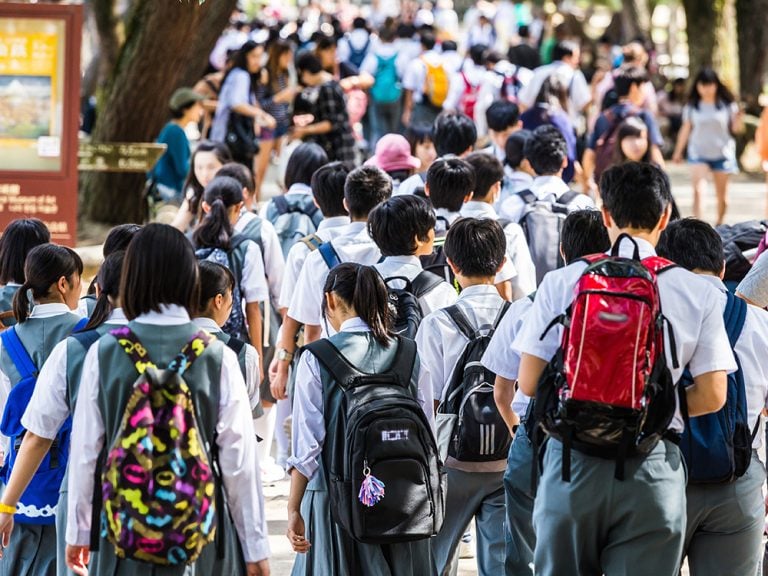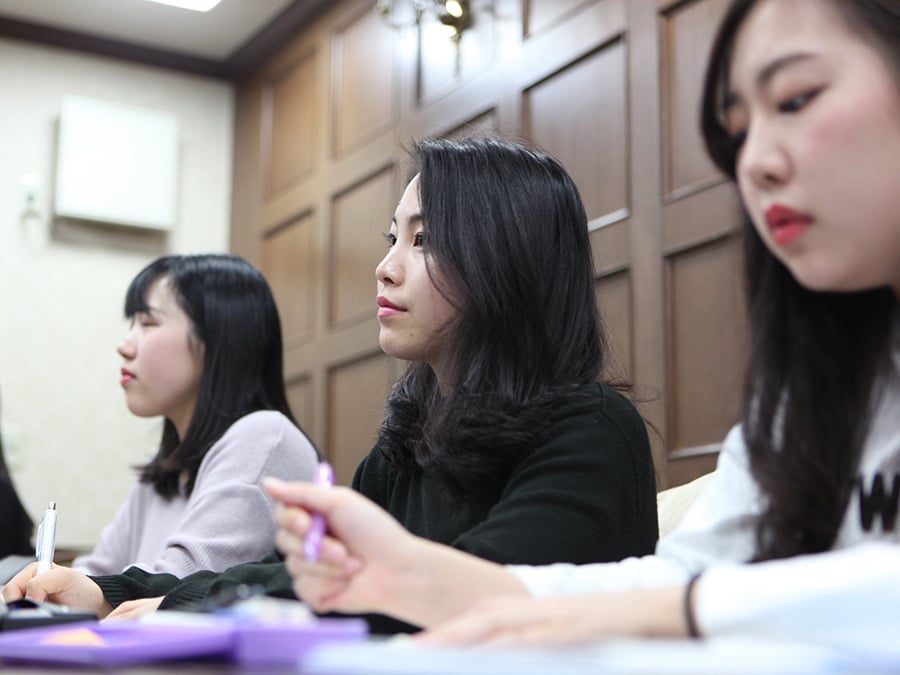
If you go on Facebook Groups or Reddit forums you’ll often find people who will tell you all about how teaching salaries in Japan are capped at somewhere between ¥250,000 and ¥300,000 per month, and that “you’ll never make any more than that.” It’s often used as a thinly veiled excuse for not making more money or for leaving Japan and going home.
However, in my experience it is possible to make a lot more money teaching English when you do a few key things:
- Become better at what you do – become a great and passionate teacher
- Become better at looking for jobs – learn how to better monetise your skills and learn how to hustle for work. It’s always going to be a useful skill.
- Learn what jobs pay the best, and become capable of getting those jobs
- Carve out a niche or specialize in an area – if you’re passionate about a particular thing, teach it. I taught bakery classes, debate and philosophy, and it just so happens that the more specialised knowledge you need to teach something, the more you get paid.
- Omit the middle-man – This will not happen overnight (and I am not condoning poaching your school’s students as the school deserves the revenue for students they sourced), but build your own network of private lessons. You would be amazed at both the difference that the extra money makes in your life and how much less stress you will have when you know you can support yourself (or even just extend your exit ramp) if you decide to part ways with your employer. While keeping your employer happy is important, having some money on the side helps you emotionally if you have to refuse an unreasonable request from your boss.
A big part of this is the type of job and understanding how to get these jobs. Here’s a quick overview of the types of English teaching jobs in Japan, how much you can make and how to get them.
Eikaiwa and Juku (Starting salary ¥180,000 to ¥250,000 per month)
Generally this is the lowest paying kind of work you can get in Japan. Eikaiwa are English conversation schools and Juku are cram schools for tests, and the variance in their quality and pay is vast. I’ve seen schools pay as low as ¥180k per month for a full-time job with a clause in the contract that you can’t do any other work for different companies. My first job in Japan was with an Eikaiwa and I made ¥250k per month, which is widely regarded to be the standard for this kind of teaching. Personally I don’t think I could enjoy my life in Japan on any less than ¥250k per month. I have met Eikaiwa teachers in their sixth plus year making ¥300k, and if you can hack a job for 5 years then I’m sure you could make it too. I just haven’t ever been able to stick with a company for that long…
If you want to make more money, you should recognise why this kind of job pays so poorly. Most schools are very similar, and as such they have pretty thin margins. They can’t differentiate themselves enough in a crowded English education market in order to charge more for their service, so they are in a “race to the bottom” in terms of price, and therefore what they can afford to pay you.
Also a lot of Eikaiwa don’t give you much option of where you live or teach. My first company put me in the middle of nowhere and I had to teach at several schools that we more than an hour from my house. For a first job this is fine and the train and bus time was a good time to listen to my Japanese courses, but I’m not a country person…
With downward pressure on wages and upward pressure on how many classes they will want you to handle (the more the better if they are paying you a salary), this is usually the worst option in terms of making good money as an English teacher in Japan.
The good part about being such low paying and readily available jobs is that they are easy to get. Many of them offer visa support and will help you to get to Japan in the first place. Take a look on the board with “overseas applicants” ticked and you’ll find a lot of Eikaiwa jobs that will help with getting you to Japan and starting out here.
ALT (¥230,000 – ¥280,000 per month)

The second most common teaching job in Japan is ALT, or Assistant Language Teacher at public schools in Japan. A lot of hiring for these jobs is now farmed out to private companies so the salaries, working conditions and training can vary a lot, but in general you’ll have more stable conditions. You’ll work during the day which means at night time you could go to meetups, events or take someone out on a date rather than be teaching evenings and weekends like many Eikaiwa teachers have to.
In my experience these jobs pay more than Eikaiwa, but not by much. ¥250-265k is an average salary for an ALT, though of course if you get on the JET programme you’ll get ¥280k in your first year and going up each year to a maximum of three years.
I doubt even with direct contracts with public schools that you could ever make more than about ¥320-350k per month as an ALT. Similarly to Eikaiwa, these are some of the most common jobs for English-speaking foreigners in Japan, and as such they are easy to find and get.
International Preschool/Youchien (¥240,000 – ¥300,000 per month)

“International Preschool” is not to be confused with international school. There is no barrier to entry for calling your kindergarten an international preschool, so many people have done this to bring along some of the prestige of the term “international” without having to necessarily provide the same level of education.
Having said that, many international preschools pay their teachers more as their margins are better. The one I worked for back in Nagoya I got ¥280k per month for teaching my own class of little-uns. I think this is a slightly above standard pay rate for international preschool, but there are often jobs in international preschools on the board on JobsinJapan.com showing similar salaries. For these jobs you usually need to be pretty good with kids (obviously) and can do a solid demonstration lesson with smiles and positivity.
Private School (Often Hourly Rated – ¥2,500 – ¥7,000 per hour)
Private school is where your salary starts to look nicer. I’ve taught at a few private schools now and the salary has often been more than double per hour (sometimes triple) from what I was earning as an ALT. Less work for more money. I’m currently teaching at a private school in Mitaka, and not only am I paid nearly triple my hourly rate from my Eikaiwa job, but I am even paid the same during school holidays, of which there are three months worth in a year!!! There are seven full weeks off for summer, fully paid.
Of course, I’m not only an English teacher at this school, and because I’m able to be a teacher as opposed to an ALT it does mean that there is a LOT more preparation and marking work that is outside my teaching hours. For me this is a part of the job that I don’t mind so much, but you could make a case for saying that the hourly rate doesn’t represent the amount of extra work you do beyond that hour.
Salaries here range, but as a general rule private school teaching starts at about ¥3,000 yen per hour, and goes up to as much as ¥7,000 per hour in prestigious institutions with deep pockets. Getting these jobs can be easy or tough depending on how you look at it. The level of teaching skill required to get in is much higher, especially for your first private school gig. Once you have done your first one though, you’ll find it much easier to get connected with and have the chops to enter other private schools, and more prestigious and high paying ones too.
Aside from JobsinJapan.com, an extra resource for finding these kinds of jobs is JALT, who sometimes share jobs at higher level institutions. Ohayo Sensei might have a few as well.
Working Part-Time for Advanced Teaching Contracts (¥2,000 to ¥10,000 per hour)
I talk about this a lot in my book as a way to make more money as an English teacher for fewer hours, and it has worked pretty well for me. However, big disclaimer, it requires you to be a lot more informed about your visa status (either be married to a Japanese person or liberally use the permission to engage in activities form at immigration).
I’ve worked part-time for a lot of school and programs and the salary is usually much much better, so you can end up working far fewer hours for similar pay to an ALT or Eikaiwa teacher. While I have a more stable part-time job now, for a few years I was always job hunting for little gigs that would occasionally pay more than 6,000 yen per hours for several hours of work per week. I had to mish-mash those schedule together and ended up doing quite a bit of train travelling around Tokyo, but I was getting valuable experience to put on my resume showing me to be a more competent and able teacher, while also paying me very well.
If you’re good at interviewing and jumping into the world of freelance English teaching, this might be for you. If you value security and don’t want to take risks, this is probably going to stress you out too much.
University and International School (Paid by the koma, or number of classes per week ¥15,000-30,000)

University and International schools pay some of the highest salaries for teachers in Japan. International school’s middle of the range pay is around ¥400,000 to 450,000 per month, but often scales over time unlike standard eikaiwa jobs that basically don’t go up at all. It’s not unheard of for top International schools to pay ¥700,000 per month plus bonuses. The kicker is that you’ll usually require a teaching qualification as well as a Master’s degree in the subject you intend to teach.
University can scale the pay even further. Usually starting lecturers are paid by the koma, which is one 90 minute class per week. Universities in Japan may pay up to ¥30,000 per koma for part-timers, and while many of them low-ball this number now, in general, the pay is pretty good.
To figure out how much you’ll make, multiply how many 90 minute classes you teach in a week by the koma rate to get your monthly pay. Confusing I know. Think of it this way; if the University pays ¥25,000 per koma, and you have 6 koma per week (9 teaching hours and you can leave when your classes are over), that means you’ll get ¥150,000 per month. Not bad for 9 teaching hours, but you also need to prep and hold office hours. Still much better than an ALT job where you might teach 22 hours per week (total working hours 35-45 depending on the school) for ¥240k.
They pay throughout the year (nice) while only requiring you to teach during term time. Apply directly to the institutions in most cases as they have their own hiring procedures.
I hope you found this helpful. If you want to know more and raise your chances of getting a better paying teaching job in Japan, check out my book The Smart Guide to Teaching English in Japan on paperback or Amazon Kindle.
















